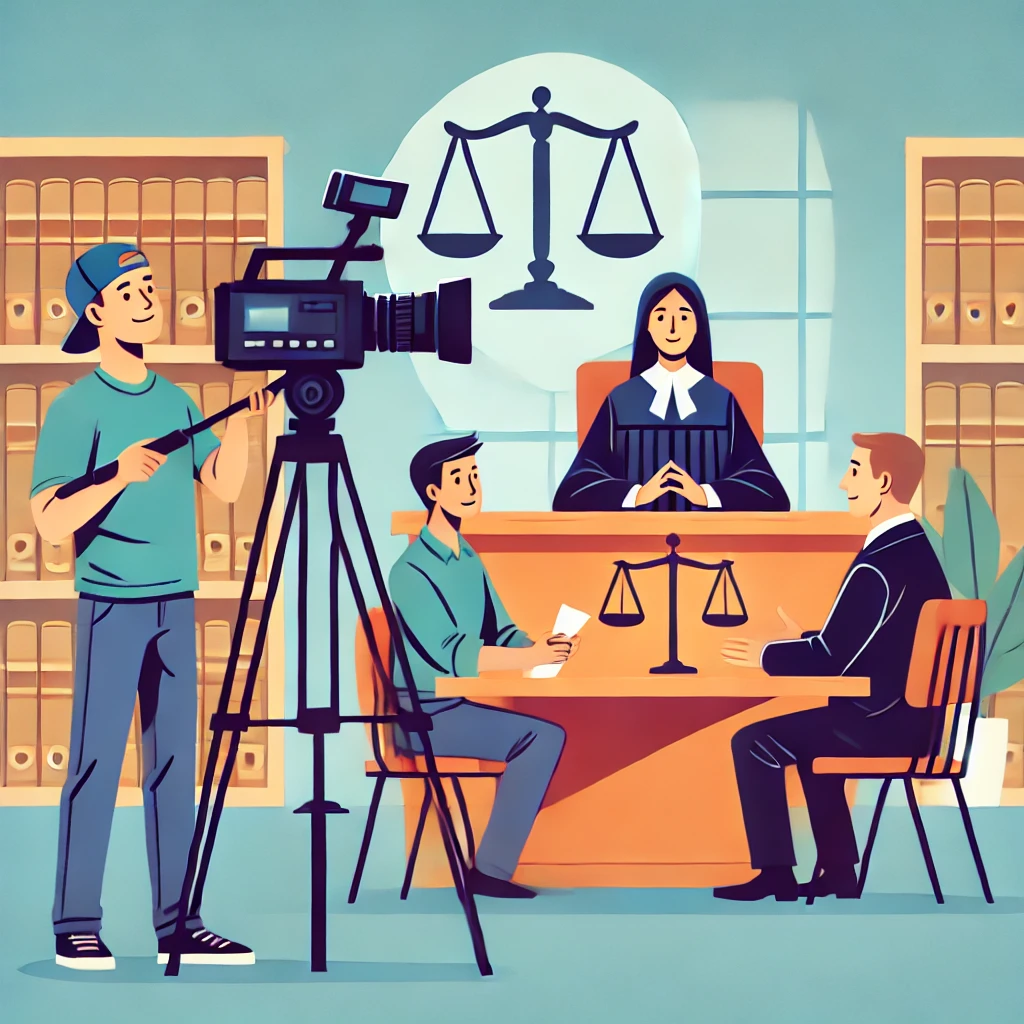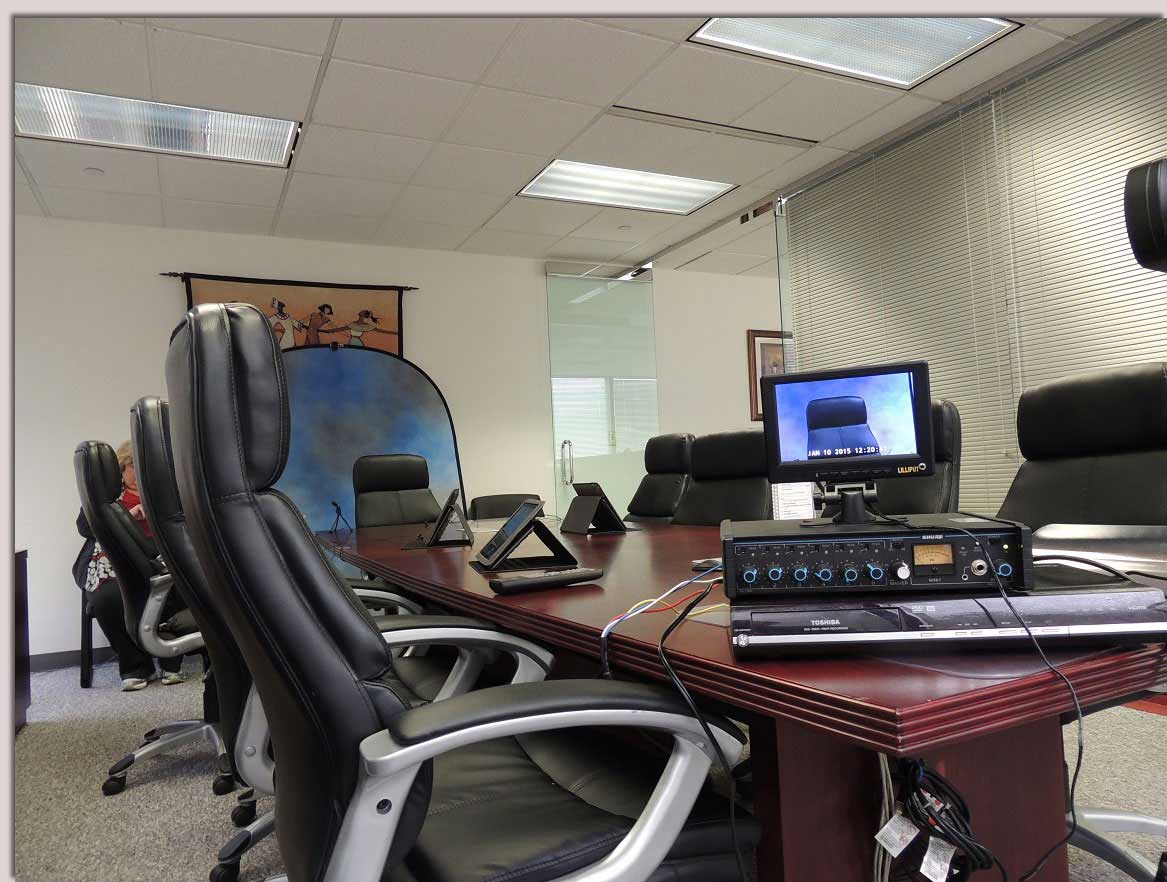Tailored Legal Videography for Legal Professionals.
The Role of Legal Videography in Depositions and Tests
Lawful videography has emerged as a vital device in both depositions and trials, providing a complex strategy to recording witness testimonies. As legal experts progressively recognize its value, it triggers a deeper assessment of just how these aesthetic records can affect juror understandings and test results.
Value of Legal Videography
Lawful videography plays a pivotal duty in the documents and discussion of depositions and tests. This specific area incorporates technical skills with legal knowledge to develop a trusted record of process that can significantly affect instance outcomes. The appearance of lawful videography enhances the understanding of witness testimony, permitting jurors and courts to observe not only the spoken words however also the attitude, emotions, and body language of the witnesses.

The importance of lawful videography expands past the courtroom; it additionally plays an essential duty in maintaining evidence for future recommendation, whether for allures or further legal activity. Its assimilation into the legal procedure is essential for making certain a reasonable and exact depiction of the truths, inevitably contributing to the search of justice.

Refine of Legal Videography
While recording the nuances of depositions and trials, the process of lawful videography involves a number of essential steps that ensure top quality, accurate recordings. A specialist lawful videographer prepares by evaluating the situation products and recognizing the certain requirements of the deposition or test. This prep work consists of familiarizing themselves with the individuals and the context, which aids in recording essential information.
On the day of the recording, the videographer sets up the needed tools, which typically includes high-def cameras, microphones, and appropriate illumination. Ensuring ideal angles and sound top quality is essential, as it directly influences the efficiency of the recording. The videographer connects with attorneys and participants to develop protocols, making certain that every person understands the recording process.
During the deposition or test, the videographer meticulously videotapes the procedures, paying very close attention to both spoken and non-verbal signs. legal videography. This consists of capturing the temperament and responses of witnesses and attorneys. After the session wraps up, the videographer might edit the video footage for clarity and compliance with lawful requirements, creating a final product that accurately shows the procedures for future referral and use in read what he said legal contexts
Benefits in Depositions
The consolidation of videography in depositions supplies numerous advantages that improve the overall procedure of gathering proof. One key advantage is the capacity to catch witness testimonies with visual and acoustic fidelity, offering a more exact representation of the witness's temperament, tone, and body language. This multidimensional approach enables attorneys and juries to assess integrity much more successfully than traditional written transcripts alone.
Additionally, videographed depositions function as an effective device for preserving statement. Ought to a witness become inaccessible for trial, their videotaped deposition can be played in court, making sure that their proof remains obtainable and pertinent. This element significantly minimizes the risk of losing vital details that could affect situation end results.
Additionally, using lawful videography promotes far better prep work for lawyers. Examining video clip footage allows legal teams to analyze and refine their methods, recognizing strengths and weak points in their situations. This primary benefit can cause more compelling discussions in court.
Last but not least, videography improves the general professionalism and reliability of the deposition procedure, instilling confidence in customers concerning the thoroughness of their lawful depiction. By leveraging modern technology, legal experts can substantially enhance the performance of depositions.
Influence on Trials
In lots of tests, the assimilation of videography can considerably influence the presentation of evidence and the jury's understanding. Lawful videography catches witness testimonies and critical proof in a dynamic layout, enabling jurors to involve with the material on several degrees. This aesthetic element boosts the narration facet of a test, providing context and psychological vibration that conventional text-based proof may do not have.
Moreover, video recordings can act as effective tools for impeachment throughout interrogation. When disparities emerge between a witness's previous statements and their court testament, video proof provides an objective recommendation that can guide jurors' opinions. This immediacy and quality can strengthen the integrity of an event's narrative while concurrently undermining opposing disagreements.
In addition, making use of videography can aid enhance complex information, making it more obtainable to jurors who may battle to understand intricate details offered entirely via spoken testament. By incorporating content visuals with acoustic details, lawful videography can enhance retention and understanding, ultimately affecting the court's decision-making process. The effect of videography in trials prolongs beyond simple appearances; it plays an essential duty in shaping the legal landscape and outcomes.
Future Trends in Legal Videography
As we look towards the future of lawful videography, several arising fads guarantee to improve its role within the courtroom. One considerable trend is the combination of expert system (AI) in video analysis and modifying - legal videography. AI can enhance the process of recognizing key minutes in tape-recorded depositions, allowing lawyers to quickly access pertinent web content, therefore boosting effectiveness in situation prep work
Furthermore, the increase of virtual reality (VR) and increased fact (AR) innovations is anticipated to change just how jurors experience proof. By submersing jurors in a simulated environment, these modern technologies can offer an extra profound understanding of complicated circumstances, resulting in more educated considerations.

Moreover, the increasing demand for remote depositions, accelerated important link by the COVID-19 pandemic, will likely continue. Lawful videographers will require to adjust to new software and systems to make certain premium recordings in virtual setups.
Lastly, the expanding emphasis on information security will demand stricter methods for saving and sharing video clip evidence. As the legal landscape advances, legal videographers have to remain abreast of these trends to preserve their importance and performance in the judicial procedure.

Conclusion
In recap, legal videography offers an important function in the judicial process, boosting the integrity of depositions and trials. By catching the subtleties of witness statements, this tool not only protects essential proof yet additionally help in offering information properly to jurors. The significance of visual paperwork in examining trustworthiness and promoting interrogation can not be overstated. As innovation remains to progress, lawful videography is poised to additional transform its duty within the legal landscape.